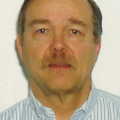I rarely read Congressional testimony; they are almost universally dull, self-congratulatory, defensive, biased, and ultimately full of not very helpful responses to not very helpful questions from not very well informed politicians. Nonetheless, a few recent industry articles led me to break my own rule and peruse the recent testimony of John Roth, (linked here), Inspector General of U.S. Department of Homeland Security, before the House Subcommittee on Transportation Security, regarding some of the challenges facing TSA. He said:
“My unusually blunt remarks were born of frustration that TSA was assessing risk inappropriately and did not have the ability to perform basic management functions in order to meet the mission the American people expect of it. These issues were exacerbated, in my judgment, by a culture, developed over time, which resisted oversight and was unwilling to accept the need for change in the face of an evolving and serious threat. We have been writing reports highlighting some of these problems for years without an acknowledgment by TSA of the need to correct its deficiencies.”
Appended to his testimony is a 12-page list of the status of 50 IG recommendations just since March of 2011 (presumably there were more in the preceding 10 years). TSA agreed with 47, disagreed with 2, and did not respond to one; ten more are current or planned. However, “agreed” apparently does not translate to “accomplished”. I will first concede that some are listed as classified, so it’s not possible to assess their nature or value, although one can draw some conclusions from the constant barrage of negative media; and some are merely procedural, such as several that address the handling of sensitive information. Second, I shall also submit that political and bureaucratic ideas of what comprises good security often don’t work at all in the real operational world of a busy airport. Imposing more stringent and often irrelevant regulations doesn’t make the system work better, or faster, or smarter. Style over substance – yes, we tightened the screws, but the balloon keeps popping out on the other end.
The brief space available here doesn’t allow a deep dive into some of the more serious governmental issues identified in Roth’s testimony: implementation of risk assessment rules, management of TSA PreCheck, failure of screening operations, management of the workforce, and oversight over acquisition and maintenance of screening equipment, among others. It’s also a serious impediment to realistic solutions when certain politicians who shall remain nameless (because I like my job) determine that grand-standing on many issues they don’t understand should result in cutting the necessary budget for actual improvements because others don’t agree.
It would take us exponentially more time and space to even inadequately address how the real world works out there: how every airport has a very different operational overlay that doesn’t fit a narrow interpretation of the regulation, so they often spend more time and resources working to placate the inspector than to meet the real need; how certain segments of the traveling public can be totally unpredictable and/or bizarre in their behavior, not because they have evil terrorist intent, but because they are – forgive me – plain stupid, as partially evidenced by the fact that now, more than 14 years after 9/11, the past three weeks in a row have seen record numbers of weapons seized at the nations’ checkpoints. The scary part is that maybe they were always there, and we’re just getting better at finding them.
There is no such thing as perfect security, only varying degrees of insecurity. We will continue to fail, hopefully less. Technology and training will get better, and we will presumably continue to improve. There are two contemporary philosophers that encompass my views in this world of uncertainty:
“The pessimist complains about the wind; the optimist expects it to change; the realist adjusts the sails."
William Arthur Ward
“No matter how cynical I become, it’s never enough to keep up.”
Lily Tomlin
About the Author
Art Kosatka
CEO
Art Kosatka is CEO of TranSecure, an aviation consultancy in Virginia. He'll respond to questions or comments at [email protected].
